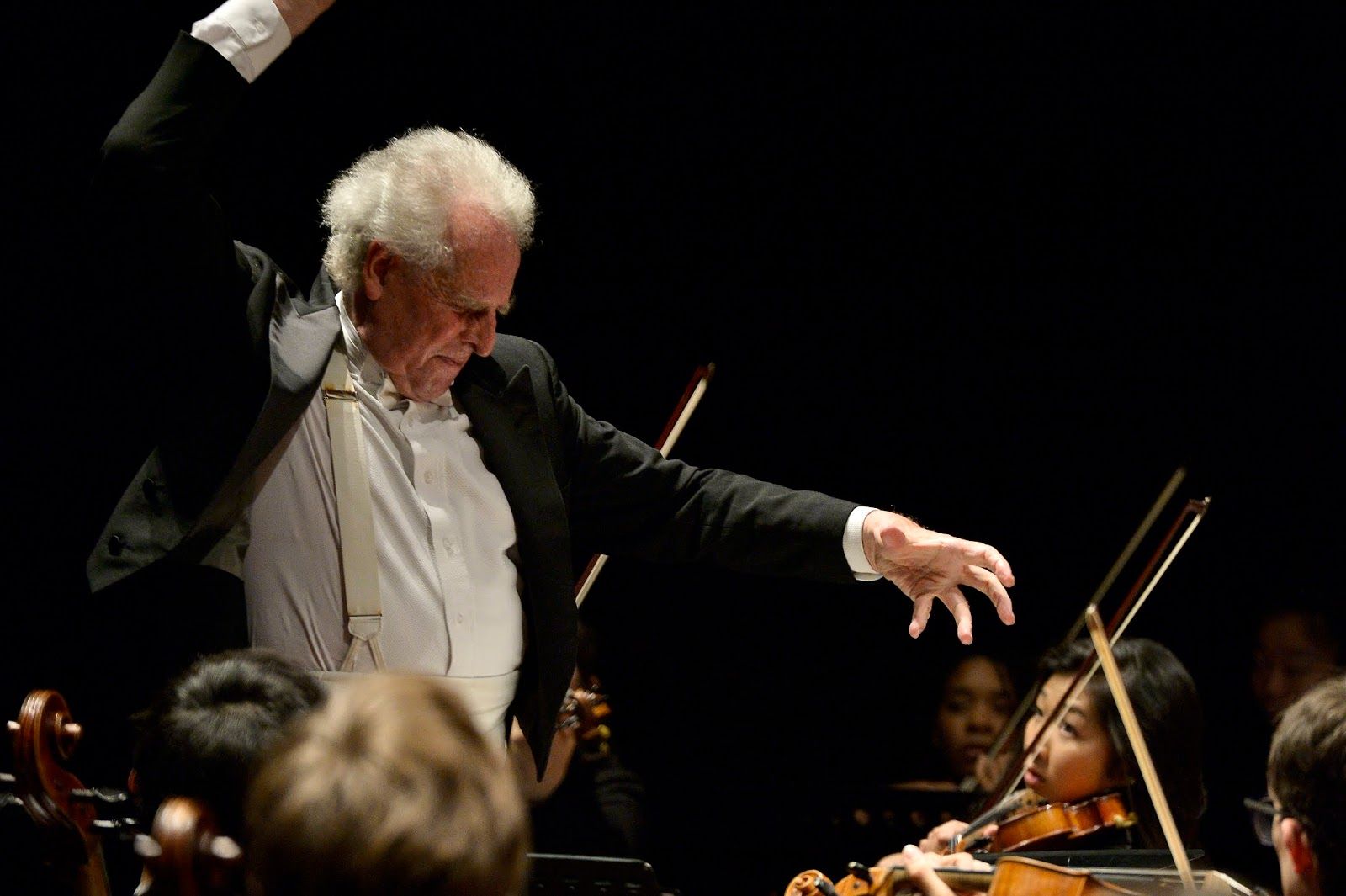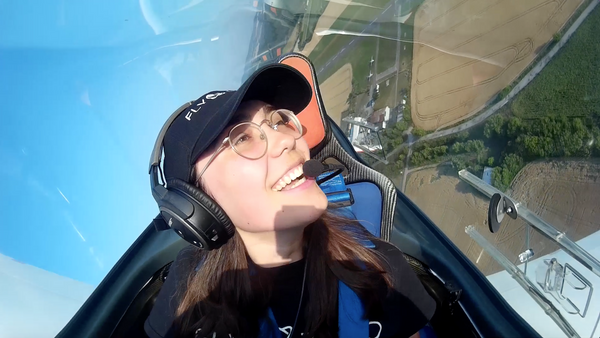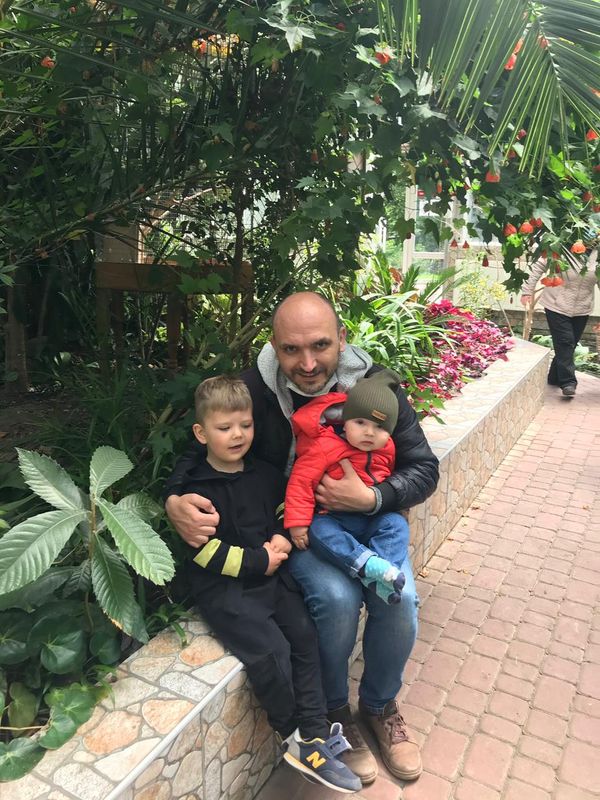Interview with Renowned Conductor, Benjamin Zander: A Musical Note Incarnate
His TedTalk has been viewed nearly 20 million times, though his impassioned teachings about life's bigger picture, are timeless.
By Victoria Oldridge
Since 1979, Benjamin Zander has been the conductor of the Boston Philharmonic. He is known around the world as both a guest conductor and a speaker on leadership -- and he's been known to do both in a single performance. He uses music to help people open their minds and create joyful harmonies that bring out the best in themselves and their colleagues.
His provocative ideas about leadership are rooted in a partnership with Rosamund Stone Zander, with whom he co-wrote The Art of Possibility.
In this interview Benjamin speaks with me from his home in Boston, where he's seated throughout the discussion on his piano stool where he routinely and spontaneously pivots his body, mid-sentence, toward the piano and plays intensely...for an audience of one.
Truffld: At age 15 you decided to go to Florence, study music alongside some of the best of the world, and never return to school in England. You were composing music at age nine, but there must have been a spark much earlier than that. Tell us how you realized that music would become your world.
Ben: I was maybe three or four [quickly turning toward the piano]. My father came home from the office – he was an amateur pianist – he never brought home a briefcase, but he would sit down at the piano and play, and he was so beautiful [breaks into operatic song]. He looked so happy when he was playing, I said, "Whatever he's having, I want that." It was the influence of his body language – he was ecstatic and he moved his whole body; his shoulders were up and his head was in the air.
My father really had a gift. When he was in Germany at age 17 as a German soldier at war fighting on the Russian Front, his mother sent scores to him. He sat in the trenches with the war going on around him, quietly reading a symphony and he could hear the music he was reading, even if he'd never actually heard that symphony before.
Whatever he was playing was life-giving and it was joyful. I got that message very young. Then I started to play, and he used to say that I was "Climpering," which to him meant 'mucking about,' and I would be all over the piano, while he wanted me to be serious, but I wanted to play.

Truffld: Many kids pick-up an instrument, have a knack for it, but lose motivation in their early teens and never go back. Why do they give up at that critical age, and how can we support our children in keeping music a high priority in their lives?
Benjamin: That's a very important question. I had enormous inspiration – just imagine this: I had to travel and hour-and-a-half each way to school, and so he moved into a hotel in London during the week with me so that I could practice, and on the weekends he was also very devoted.
When I went away to school at age 13, I was surrounded by passionate musicians, and there was a great cellist teacher at the school which led to 45 other great cellists at the school because of her, so it's always about the person, it doesn't happen by itself. Being a parent is a big responsibility because whatever the parent inspires, the child will follow unless there's a lot of resistance. In the case of music it's a lot of hard work so you have to make it lively. For example, when I played scales on the cello, my dad would improvise scales on the piano – he knew that a scale alone wouldn't be interesting; isn't that great? My father, a Jewish scholar, wrote a prayer to St. Sicilia that we would say together before every practice – it wasn't heavy-handed, but it elevated the moment.
I've been fortunate to learn among some of the most remarkable musicians in the world who were teaching me for no pay at all, they were just giving it away to me, and that's what I try to do now – how could I do anything other than what they did for me?
Truffld: You're a walking, palpable, visceral symphony, orchestra – a musical note incarnate, and that's an organic gift that seems very difficult for the average person to cultivate from scratch.
Benjamin: The interesting thing about that is it doesn't come from me, it comes through me. Like electricity, it happens when you put the plug into the socket and it never fails [plays Beethoven emphatically, hands pounding the keys the length of the piano while matching the sounds with his voice, the music continuing to seep from his body language even after he stops playing]. That's Beethoven speaking. Think of it, Beethoven was deaf, alone, ill, cantankerous, he had a terrible life, always in conflict, and yet even when he sat down in his loneliness, he spoke for all of humanity. He allows us as human beings to get in touch with those sides through his music.
My life has taken two paths simultaneously: one is this incredibly powerful language, music, and the other is the notion that we can choose to be in possibility rather than in the downward spiral of despair and anger. The downward spiral is about one kind of life – about winning and losing, failure and success; that whole competitive measurement thing which we all do – but the other path is about creativity, joy, connection, inclusion, community, and love. And music lives in the path of possibility.
Truffld: The ripple effect of music across our lifetime influences so many aspects of our health, cognition, and the ways in which we learn. In your very extensive experience, what are some of the most poignant aspects of music you've observed?
Benjamin: I can see in you now as you listen to me play that your eyes are shining, you're nearly in tears, you have a different way of breathing. What's fascinating is we carry those memories throughout life, so when you're in an old person's home at age 101, and everything is gone, your musical memories will stay. That's one of the miracles. There are so many stories that music penetrates deep into the DNA and it stays even when everything else is gone [breaks into another Beethoven song].
Truffld: Many of us will never or can never fully grasp what's happening between the conductor-orchestra relationship. How would you describe what's taking place?
Benjamin: It's a mystery because the conductor doesn't play a note, but with the hands we can mold the sound and the direction, dynamic, energy, excitement, and tempo. You have to assume that most orchestra players are what I call, "Two buttock players," where they're more stationary, but they're waiting to be released like a bird out of a cage. They want to soar, to dive, to feel and emote, and the conductor is the one who guides the shape to their flight or they'd be flying in all directions.
Some people think that it's about playing perfectly, but it isn't enough. The expression, the character, and communication is still more important. Beethoven didn't mind wrong notes, he minded wrong character. Generating the joy and love – music is a wonderful vehicle for that because it isn't about winning and losing, it's not about making money, or fame or fortune. It's about sharing, the energy, the impulse, and playing with the whole heart to a point that you don't feel time.
Learn more about Benjamin Zander through the Benjamin Zander Center.



